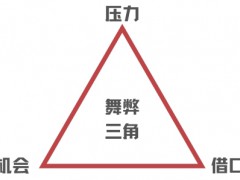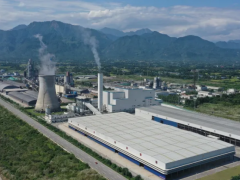据石油新闻2021年4月11日迪拜报道,根据国际货币基金组织(IMF)发布的中东和中亚地区展望报告,由于油价上涨和经济复苏的预期,中东石油出口国平衡国家预算所需的盈亏平衡油价在2021年和2022年预计将大幅下降。
根据IMF 4月11日发布的最新统计数据,沙特阿拉伯平衡国家预算所需的盈亏平衡油价预计将从2020年的77.9美元/桶下降到今年的76.20美元/桶,并在2022年进一步下降到65.70美元/桶。
与此同时,IMF表示,阿曼的盈亏平衡油价预计将从2020年的95.8美元/桶降至2021年的72.3美元/桶,而阿联酋的盈亏平衡油价预计将从2020年的68.2美元/桶降至64.6美元/桶。相比之下,科威特的盈亏平衡油价预计将从2020年的68.1美元/桶升至2021年的69.3美元/桶,但到2022年将降至64.5美元/桶。今年伊拉克的盈亏平衡油价预计将从去年的63.7美元/桶升至71.3美元/桶。
IMF在一份报告中表示,“2020年,中东地区的财政账目大幅恶化,反映出国内需求萎缩和油价暴跌导致的收入减少,以及为减轻疫情影响而采取的政策支持措施。”“与石油进口国相比,石油出口国的公共财政状况恶化幅度更大,这反映出石油收入减少。”
IMF的统计数据显示,中东和北非地区的财政赤字从2019年占GDP的3.8%扩大到2020年的10.1%。
IMF表示,较高的油价和疫苗的早期推广,特别是在阿联酋,支持了许多海湾合作委员会经济体的前景改善。
IMF中东和中亚事务主任吉哈德·阿祖尔在4月11日的新闻发布会上说,“阿联酋是该地区在早期接种疫苗方面最先进的国家之一”。他表示,“这使阿联酋经济得以适应第二波疫情浪潮冲击,并应有助于经济复苏。”他说,计划在今年10月在迪拜举行的Expo 2020峰会“将为非石油经济提供额外的推动。”
李峻 编译自 石油新闻
原文如下:
Middle East oil exporters will see lower breakevens even as prices stall: IMF
The breakeven oil prices that Middle Eastern countries need to balance their state budgets are largely projected to fall in 2021 and 2022 on expectations of higher oil prices and economic recoveries, according to the International Monetary Fund's regional outlook for Middle East and Central Asia.
Saudi Arabia's breakeven price is expected to drop to $76.20/b this year from $77.90/b in 2020, and fall further to $65.70/b in 2022, according to IMF data released April 11.
Meanwhile, Oman's breakeven price will fall to $72.30/b in 2021 from $95.80/b in 2020 while the UAE's breakeven price declines to $64.60/b from $68.20/b in 2020, the IMF said. In contrast, Kuwait's fiscal breakeven price is expected to inch up to $69.30/b in 2021 from $68.10/b in 2020, but decrease to $64.50/b in 2022. Iraq's breakeven price is projected to increase to $71.30/b in 2021 from $63.70/b last year.
"Fiscal accounts deteriorated sharply across the region in 2020, reflecting lower revenue because of contracting domestic demand and the slump in oil prices, as well as policy support measures to mitigate the pandemic's impact," the IMF said in a report. "Oil exporters recorded a larger deterioration in their public finances than oil importers did, reflecting lower oil revenue."
For the Middle East and North Africa region, fiscal deficits widened to 10.1% of GDP in 2020 from 3.8% in 2019, according to the IMF.
Higher oil prices and early vaccine rollouts, especially in the UAE, support the improved outlook for many Gulf Cooperation Council economies, the IMF said.
"UAE was one of the most advanced countries in the region in early inoculators" against the pandemic, Jihad Azour, the IMF's director of the Middle East and Central Asia, said at an April 11 press conference. "This allowed the UAE economy to adjust to the second wave" and should help the economic recovery, he said. Expo 2020, the international fair planned in Dubai in October this year, "will provide an additional boost to the non-oil economy," he said.
免责声明:本网转载自其它媒体的文章,目的在于弘扬石化精神,传递更多石化信息,并不代表本网赞同其观点和对其真实性负责,在此我们谨向原作者和原媒体致以敬意。如果您认为本站文章侵犯了您的版权,请与我们联系,我们将第一时间删除。







